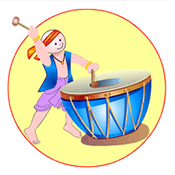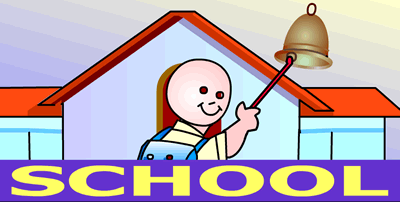
Dimdima
Online Children's Magazine from India

Dimdima
Online Children's Magazine from India

Pune
CHILDREN'S CONTRIBUTIONS
Deepawali is one of the most widely celebrated Hindu festivals. The literal meaning of Deepawali in Sanskrit is a ‘row of lamps’. This festival generally falls on ‘Amavasya day’ on the month of October or November. It is celebrated by people of various regions in India. In the southern region Deepawali signifies the death of the demon king Naraksura and the northen region celebrates the return of Rama from exile. Though the reasons may vary, the enthusiasm and excitement in celebrating the festival is just the same. This festival is celebrated by the rich and the poor alike.
Deepawali being a festival of lights, signifies the triumph of good over evil and lighting the lamp of knowledge.
On this day, people wake up early in the morning, have scented bath, wear new clothes, eat sweets and snacks and burst fire crackers. Everyone is in a joyous mood. They distribute sweets among their friends and relatives. Beautiful and colourful rangolis are made in front of every house. When darkness sets in people light up oil-lamps. Even a poor man tries to light as many oil-lamps as he can to usher in the Gods. The 2nd day of Deepawali is celebrated as Lakshmi Pooja. People worship the Goddess of wealth on this day. The 3rd day is celebrated as Bali Pratipada that is the Hindu New Year Day.
Bahu Beej is celebrated on the 4th day. Sisters invite brothers to their house and brothers give gifts to their sisters. Many people buy a new house, vehicles, ornaments etc during Deepawali.
Children love this festival the most. They get new clothes, sweets, gifts and lots of fire crackers to burst.
Bursting fire crackers are very enjoyable but they can be hazardous to health. They add to air and noise pollution. Apart from the dangers, a large sum of money is burnt to ashes in minutes. It can be used for useful purposes.
Deepawali is a wonderful festival of giving and sharing. The main concept of celebrating festivals is to be happy and make others happy and Deepawali signifies this in its true sense.
EXPLORE MORE...
Dimdima is the Sanskrit word for ‘drumbeat’. In olden days, victory in battle was heralded by the beat of drums or any important news to be conveyed to the people used to be accompanied with drumbeats.
Bharatiya Vidya Bhavan
K. M Munshi Marg,
Chowpatty, Mumbai - 400 007
email : editor@dimdima.com
Bharatiya Vidya Bhavan
505, Sane Guruji Marg,
Tardeo, Mumbai - 400 034
email : promo@dimdima.com
Dimdima.com, the Children's Website of Bharatiya Vidya Bhavan launched in 2000 and came out with a Printed version of Dimdima Magazine in 2004. At present the Printed Version have more than 35,000 subscribers from India and Abroad.